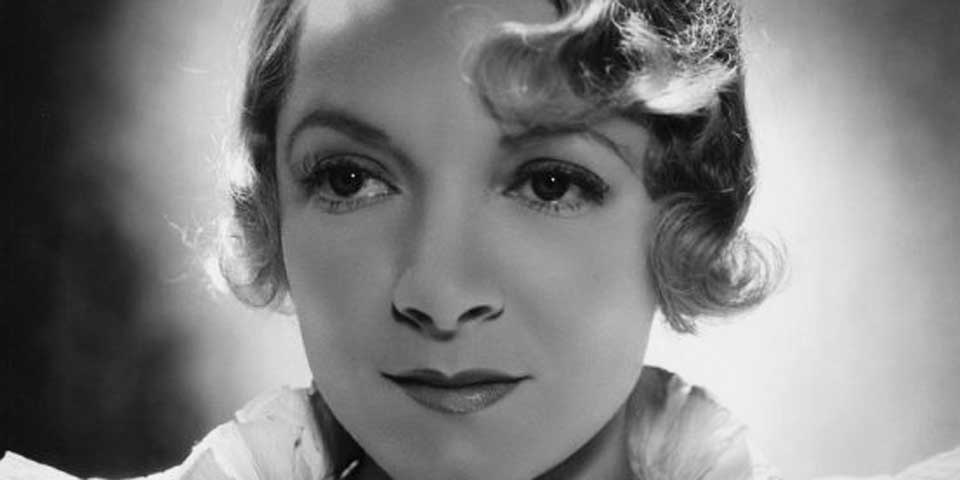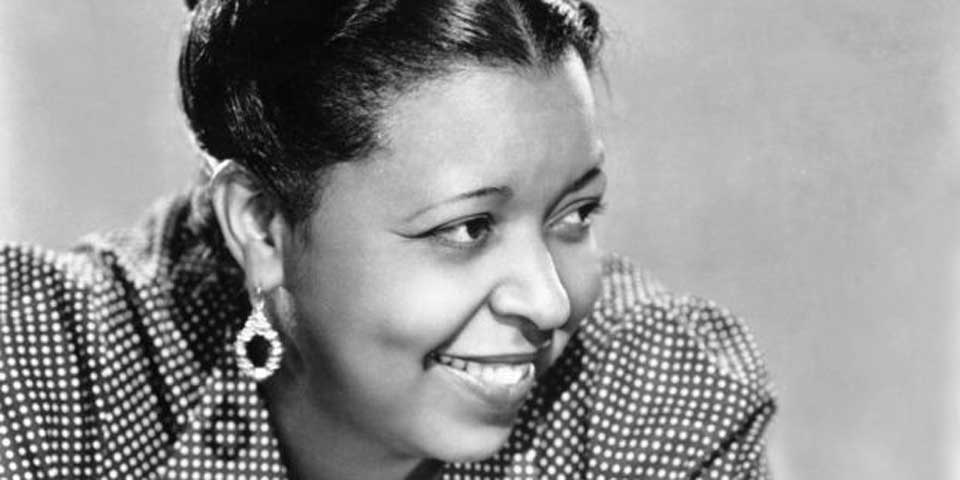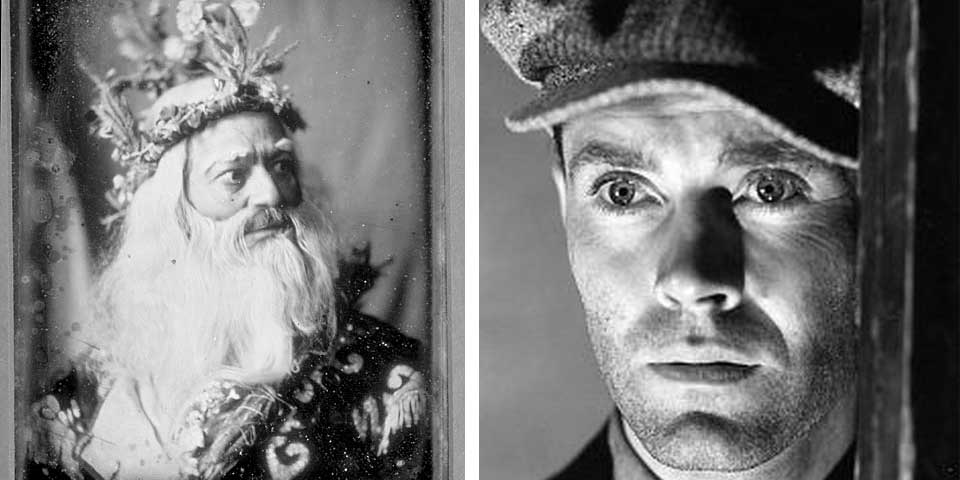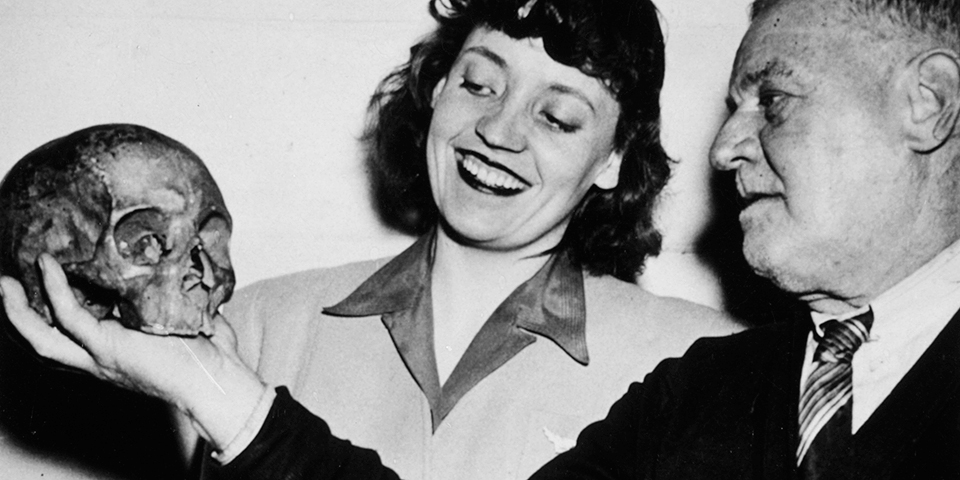Most noteworthy American actors of the 19th century and many from the 20th century (not to mention famous actors from other countries) have appeared on stage at the Walnut. Some of the Walnut's shining stars include: Edwin Booth, Edwin Forrest, Helen Hayes, George M. Cohan, Edward G. Robinson, George C. Scott, Jack Lemmon, Mike Nichols, Claudette Colbert, Jane Fonda, Julie Harris, Katharine Hepburn, Ethel Waters and Jessica Tandy.
 Helen Hayes
Helen Hayes
Before he was lost on ABC's Lost, Harold Perrineau portrayed Tyrone in Walnut Street Theatre's production of Fame!.
A member of The A-Team from 1983-1987, George Peppard reigned as King Henry II in The Lion in Winter in the Walnut's 1991-92 season.
NBC sitcom star Laura San Giacamo prepared for her career on television and screen by appearing on stage in Walnut Street Theatre's As You Like It.
America's oldest theatre was first home not to actors but horses. In 1809, Walnut Street Theatre opened as "The New Circus" and hosted equestrian acts.
Ethel Barrymore, member of the legendary Barrymore family, made her stage debut at the Walnut in 1901. Barrymore's nervousness was evident to the opening night crowd, and a voice called out from the gallery, "Speak up, Ethel! All the Drews are good actors!"
In 1820, Edwin Forrest, a young Philadelphian who would have a profound impact on American drama, made his professional debut on the Walnut stage at age 14.
Screen legend and beauty Katharine Hepburn made her only appearance at the Walnut in a new play by Philip Barry, Without Love, which opened March 23, 1942. She had previously collaborated with Barry on The Philadelphia Story.
Among those making the leap from vaudeville to the legitimate stage were the Marx Brothers, who debuted their first stage show, I'll Say She Is, at the Walnut in the summer of 1923.
During the winter of 1924-25 an organization called the 7 Arts Club put together a series of seven Sunday night events at the Walnut. The first of these took place on November 16, when Paul Robeson appeared in The Emperor Jones.
Mister Roberts, starring Henry Fonda opened for a pre-Broadway tryout at the Walnut on January 27, 1948. Fonda, recently discharged from the Navy, used his own uniform in the play.
 Ethel Waters
Ethel Waters
George M. Cohan brought his new musical, Little Johnny Jones, to the Walnut in October of 1904. The show introduced two timeless musical numbers: "Give My Regards to Broadway" and "I'm a Yankee Doodle Dandy."
Ugly Betty star Mark Indelicato made his Walnut debut as Young Picasso in La Vie en Bleu.
Walnut Street Theatre's hand-painted fire curtain, which still hangs above the stage, displays the historic painting "The Bell's First Note, 1753."
On July 3, 1990, President Carter was awarded the Philadelphia Liberty Medal at the Walnut. This medal honors an individual or organization from anywhere in the world that has "demonstrated leadership and vision in the pursuit of liberty of conscience or freedom from oppression, ignorance, or deprivation."
Oscar-winning actress and famed exercise maven Jane Fonda appeared onstage at the Walnut in the Philadelphia premiere of There Was a Little Girl in February of 1960. This marked her first important stage role.
The Clash, one of the leading and most controversial of Britain's new wave rock bands, played one performance at the Walnut as part of their second US tour, "The Clash Take the Fifth" tour, of September-October 1979.
Jack Lemmon did not impress Philadelphia Inquirer critics in his first dramatic role in Face of a Hero, which played at the Walnut in 1960.
Sunday in New York brought Robert Redford into Philadelphia for the first time in 1961. Redford played a music critic for the Philadelphia Inquirer in this Walnut production, which went on to have a moderately successful run on Broadway.
Many kinds of performing arts have been represented at the Walnut. Some famous people who have graced our stage include comedians Lily Tomlin and Bill Cosby; dancers Alvin Ailey and Twyla Tharp; magicians Penn and Teller; mime Marcel Marceau; heavyweight champion James J. Corbett and tennis star Big Bill Tilden.
The Walnut's first theatrical production, The Rivals, was staged here in 1812. In attendance were President Thomas Jefferson and the Marquis de Lafayette.
Over the years, the Walnut has been the home of many theatrical innovations. In 1837, the Walnut was the first theatre to install gas footlights, and in 1855, the Walnut became the first theatre to install air conditioning.
The first copyright law protecting American plays has its roots at the Walnut.
Edwin Booth, brother of John Wilkes Booth, purchased the Walnut in October of 1863, two years before President Lincoln was assassinated.
Actor Junius Brutus Booth made his debut at the Walnut. Booth was the father of a famous acting clan that included three sons – Junius II, Edwin and John Wilkes Booth – and one daughter, Asia Booth.
In 1923, Groucho Marx stopped his act on the Walnut stage to tell the audience that President Warren Harding had died.
From 1941 to 1969, Walnut Street Theatre was owned by the Shubert Organization and was the site of numerous memorable pre-Broadway tryouts. These include A Streetcar Named Desire with Marlon Brando (1947), Mr. Roberts starring Henry Fonda (1948), Gigi with Audrey Hepburn (1951), The Diary of Anne Frank with Susan Strasburg (1955), A Raisin in the Sun starring Sidney Poitier (1959) and A Man For All Seasons starring Paul Scofield (1961).
In 1964, the Walnut was designated a National Historic Landmark.
 (L-R) Edwin Forrest as King Lear, Henry Fonda
(L-R) Edwin Forrest as King Lear, Henry Fonda
The Walnut was the site of the first presidential debate between President Gerald Ford and Governor Jimmy Carter during the 1976 election.
In the early 1800s an era when the stage was lit by oil or gas lamps, fire claimed the life of many theatres. On January 1, 1812, the night that the Walnut offered its first legitimate theatrical production, word arrived that such a tragedy occurred in Virginia, where the Richmond Theatre caught fire and took the lives of 71 people, including the Governor of Virginia. Throughout its history, the Walnut has been fortunate to suffer no damage or loss from fire.
Bernard Havard, the Walnut's Producing Artistic Director, has a family history rooted in theatre. His ancestor Kate Rorke created the role of “Candida” for George Bernard Shaw and was the first woman to smoke a cigarette on stage at Wyndham's in London.
The first production in the Walnut's Independence Studio on 3 Theatre was A Lunacy of Moons, which opened in 1986. Studio 3 was remodeled from a third floor film center to allow the Walnut to produce smaller, more challenging, controversial shows where profitability was not the main concern.
Since 1985, Studio 5 a 52-seat black box theatre located on the Walnut's fifth floor, has been rented out to local theatre companies. The Arden Theatre Company, founded in 1988, played its first two seasons at the Walnut's Studio 5.
Currently, the Walnut is the largest subscribed regional theatre company in the world, with nearly 50,000 subscribers annually.
Marina Sirtis, best known as Counselor Troi from television's Star Trek: The Next Generation starred in the Walnut's production of Neil Simon's Hotel Suite in 1999.
Ticket sales account for only 85% of the cost of producing shows on the Walnut's mainstage. The remaining 15% is generated through donations and corporate sponsorships.
During the 2014-15 season the Walnut's education programs, including the theatre school, Camp Walnut, the apprenticeship program, Outreach, Adopt-a-School and the Walnut Street Theatre for Kids Series, impacted over 180,000 people.
Our productions rehearse right here at the Walnut. We have rehearsal halls located on our 4th and 6th floors where productions come together from start to finish. Mainstage and Studio productions rehearse and tech for a three-week period before beginning performances in front of an audience.
In July of 1983, during the Walnut's first season as a non-profit organization, Bernard Havard brought in the Negro Ensemble Company's production of A Soldier's Play. The cast of that production included Samuel L. Jackson, who has since gone on to Hollywood stardom.
At age 21, Mark Sylvester, the Walnut's Managing Director, managed his first theatre. It was New York's historic Provincetown Playhouse that was built for Eugene O'Neill and the Provincetown Players.
The curtain call, now a tradition in every theatre, started at the Walnut with the post-play appearance of noted 19th Century actor Edmund Kean.
On July 16, 1991, the Walnut was chosen to be the site of the pilot for the modern version of Groucho Marx's television show You Bet Your Life, hosted by Bill Cosby.
There is a superstition in the theatre that no one should ever whistle while on stage. The origin of this tradition comes from the days when stagehands used whistles (like those used by sailors) to indicate cues for scene changes. If you whistled, it could bring a large piece of scenery down on your head. While no longer practiced, the superstition has been handed down through the years.
The Walnut is one of only a few remaining "hemp houses" in the country. This means that we continue to operate the original grid, rope, pulley and sandbag system that was in use two centuries ago. Most new theatres use a steel counterweight system, which better handles the weight of modern sets. One concession: we now use nylon ropes that do not stretch over time.
 John "Pop" Reed
John "Pop" Reed
John "Pop" Reed, a stagehand who worked at the Walnut for more than 50 years in the first half of the 1800's, stipulated in his will that he wanted his skull separated from his body, duly prepared, and used to represent the skull of Yorrick in Hamlet. His wish was granted, and the skull is signed by many famous actors of the day who performed in Shakespeare's play.